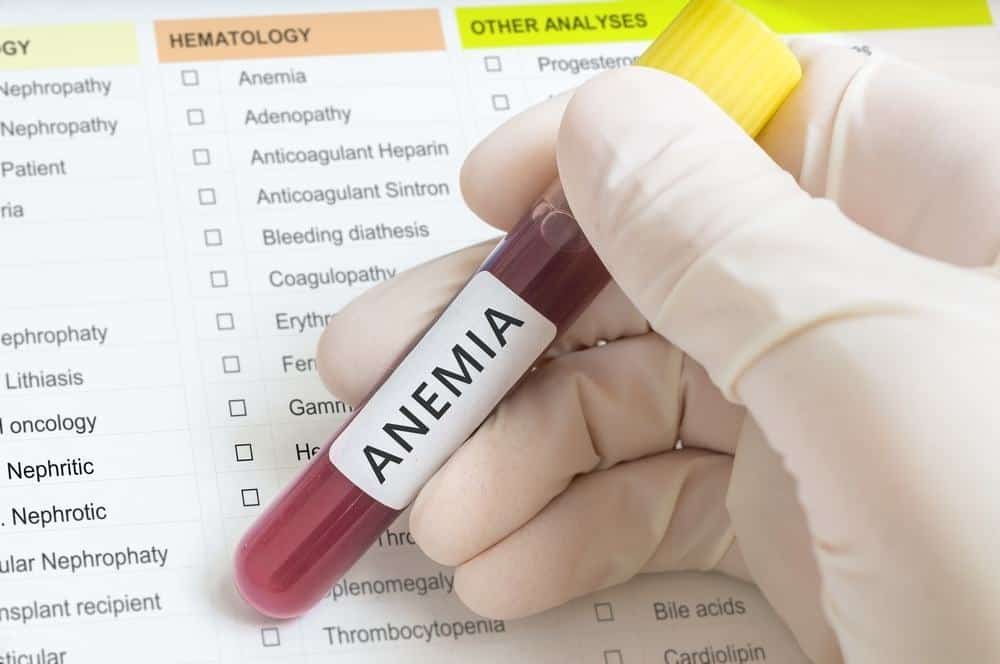Contents:
- Medical Video: Medical School - Iron Deficiency Anemia
- Causes and risk factors for anemia due to chronic disease
- Inflammatory / inflammatory disease
- Infectious diseases
- Kidney failure
- Cancer
- Treatment for inflammatory anemia and chronic diseases
Medical Video: Medical School - Iron Deficiency Anemia
Anemia due to inflammation and chronic diseases (anemia of inflammation and chronic disease or AI / ACD) occurs when chronic diseases inhibit the body from producing healthy red blood cells. In addition, chronic diseases prevent the body from using iron to make new red blood cells, even though iron levels are normal or even high.
Because AI / ACD attacks slowly, the symptoms that appear are relatively mild and even resemble the symptoms of the disease being suffered by the patient. Lack of red blood cells prevents the spread of oxygen to body tissues and organs. As a result, patients may look pale, lethargic, weak, dizzy and have a fast heartbeat.
Inflammatory anemia and chronic disease are common types of anemia in addition to iron deficiency anemia. The number of people with ACD varies depending on the type of illness suffered. As many as 60% of patients with rheumatoid arthritis, 28% of patients with mild kidney disease, 87% of patients with severe kidney disease, and almost every patient with end-stage renal disease, develops anemia.
Causes and risk factors for anemia due to chronic disease
Medical experts have identified several chronic conditions that can cause anemia, including:
Inflammatory / inflammatory disease
The body's response to inflammation can lead to anemia in chronic diseases for several reasons, namely:
- The inflammatory response can produce cytokines, proteins that protect the body against infection and interfere with iron use and the production of red blood cells.
- Inflammation can cause internal bleeding which ends in a decrease in the number of red blood cells.
- Inflammation of the digestive system can interfere with the body's ability to absorb iron from food.
Types of inflammatory diseases that cause anemia in chronic diseases include:
- Arthritis
- Ulcerative colitis
- Crohn's disease
- Inflammatory bowel disease
- Lupus
- Diabetes
- Degenerative joint disease
Infectious diseases
Patients suffering from infectious diseases can get anemia from chronic diseases if the immune system's response to infection disrupts the production of red blood cells.
As with inflammatory diseases, infectious diseases can also stimulate the immune system to release cytokines which inhibit the use of iron in the production of red blood cells. Cytokines can also block the production and function of erythropoietin, a hormone produced by the kidneys to signal the bone marrow to produce red blood cells.
Infectious diseases that cause anemia in chronic diseases include:
- AIDS / HIV
- Hepatitis
- Tuberculosis
- Endocarditis (heart infection)
- Osteomyelitis (bone infection)
Kidney failure
Kidney disease patients can get chronic anemia if the disease blocks the kidneys from producing erythropoietin. Poor kidney condition can also cause the body to be unable to absorb iron and folate optimally. In fact, folate is a nutrient needed in the production of red blood cells.
Kidney failure patients may experience iron deficiency due to blood loss during hemodialysis.
Cancer
Some types of cancer can encourage the release of inflammatory cytokines. Inflammatory cytokines can interfere with the production of erythropoietin and red blood cells by the bone marrow. Some types of cancer are:
- Hodgkin's disease
- Non-Hodgkin's lymphoma
- Lung cancer
- Breast cancer
Cancer can also harm the production of red blood cells if the cancer attacks the bone marrow. In addition, cancer treatments such as chemotherapy and radiation therapy can also trigger anemia in chronic diseases if therapy damages the bone marrow.
Among cancer patients of all ages, older people are at higher risk of developing chronic disease anemia.
Treatment for inflammatory anemia and chronic diseases
The success of AI / ACD treatment usually depends on the treatment of the underlying disease. When the chronic disease recovers, anemia will heal. Doctors can also stimulate red blood cell production through the use of:
- A drug that speeds up the production of erythropoietin
- Synthetic erythropoietin or genetic engineering
- Injections of iron, vitamin B12, or folic acid supplements
In severe cases, your doctor may recommend you undergo a blood transfusion to increase the number of red blood cells.












